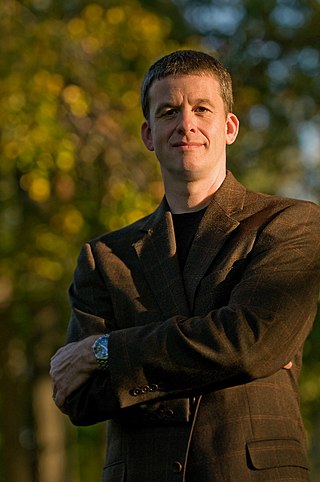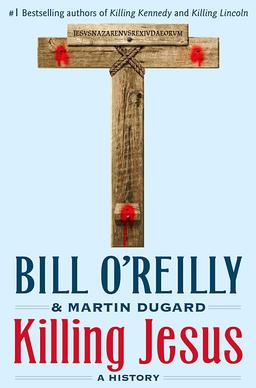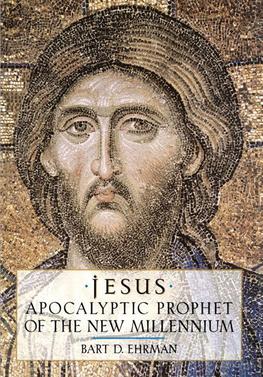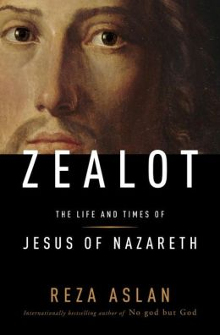The historicity of Jesus is the question of whether or not Jesus of Nazareth historically existed. The question of historicity was generally settled in scholarship in the early 20th century, and today scholars agree that a Jewish man called Jesus of Nazareth did exist in the Herodian Kingdom of Judea and the subsequent Herodian tetrarchy in the 1st century CE, upon whose life and teachings Christianity was later constructed.
The term "historical Jesus" refers to the life and teachings of Jesus as interpreted through critical historical methods, in contrast to what are traditionally religious interpretations. It also considers the historical and cultural contexts in which Jesus lived. Virtually all scholars of antiquity accept that Jesus was a historical figure, and the idea that Jesus was a mythical figure has been consistently rejected by the scholarly consensus as a fringe theory. Scholars differ about the beliefs and teachings of Jesus as well as the accuracy of the biblical accounts, with only two events being supported by nearly universal scholarly consensus: Jesus was baptized and Jesus was crucified.
The quest for the historical Jesus consists of academic efforts to determine what words and actions, if any, may be attributed to Jesus, and to use the findings to provide portraits of the historical Jesus. Since the 18th century, three scholarly quests for the historical Jesus have taken place, each with distinct characteristics and based on different research criteria, which were often developed during each specific phase. These quests are distinguished from earlier approaches because they rely on the historical method to study biblical narratives. While textual analysis of biblical sources had taken place for centuries, these quests introduced new methods and specific techniques to establish the historical validity of their conclusions.

Reza Aslan is an Iranian-American scholar of sociology of religion, writer, and television host. A convert to evangelical Christianity from Shia Islam as a youth, Aslan eventually reverted to Islam but continued to write about Christianity. He has written four books on religion: No God but God: The Origins, Evolution, and Future of Islam, Beyond Fundamentalism: Confronting Religious Extremism in the Age of Globalization, Zealot: The Life and Times of Jesus of Nazareth, God: A Human History and in 2022 An American Martyr in Persia: The Epic Life and Tragic Death of Howard Baskerville.

The Christ myth theory, also known as the Jesus myth theory, Jesus mythicism, or the Jesus ahistoricity theory, is the view that the story of Jesus is a work of mythology with no historical substance. Alternatively, in terms given by Bart Ehrman paraphrasing Earl Doherty, it is the view that "the historical Jesus did not exist. Or if he did, he had virtually nothing to do with the founding of Christianity."
Lauren Susan Green is the Chief Religion Correspondent for Fox News. Previously she was a headline anchor giving weekday updates at the top and bottom of the hour during morning television show Fox & Friends. She has also appeared as a guest panelist on Fox's late-night satire show Red Eye w/ Greg Gutfeld. She is the first African-American Miss Minnesota.

The Jesus Mysteries: Was the "Original Jesus" a Pagan God? is a 1999 book by British authors Timothy Freke and Peter Gandy, which advances the argument that early Christianity originated as a Greco-Roman mystery cult and that Jesus was invented by early Christians based on an alleged pagan cult of a dying and rising "godman" known as Osiris-Dionysus, whose worship the authors claim was manifested in the cults of Osiris, Dionysus, Attis, and Mithras.

Bart Denton Ehrman is an American New Testament scholar focusing on textual criticism of the New Testament, the historical Jesus, and the origins and development of early Christianity. He has written and edited 30 books, including three college textbooks. He has also authored six New York Times bestsellers. He is the James A. Gray Distinguished Professor of Religious Studies at the University of North Carolina at Chapel Hill.

Richard Cevantis Carrier is an ancient historian. He is long-time contributor to skeptical websites, including The Secular Web and Freethought Blogs. Carrier has published a number of books and articles on philosophy and religion in classical antiquity, discussing the development of early Christianity from a skeptical viewpoint, and concerning religion and morality in the modern world. He has publicly debated a number of scholars on the historical basis of the Bible and Christianity. He is a prominent advocate of the theory that Jesus did not exist, which he has argued in a number of his works. However, Carrier's methodology and conclusions in this field have proven controversial and unconvincing to most ancient historians, and he and his theories are often identified as fringe.

Robert McNair Price is an American New Testament scholar who argues in favor of the Christ myth theory – the claim that a historical Jesus did not exist. Price is the author of a number of books on biblical studies and the historicity of Jesus.
Samuel George Frederick Brandon was a British Anglican priest and scholar of comparative religion. He became professor of comparative religion at the University of Manchester in 1951.
Thomas L. Thompson is an American-born Danish biblical scholar and theologian. He was professor of theology at the University of Copenhagen from 1993 to 2009. He currently lives in Denmark.

Misquoting Jesus: The Story Behind Who Changed the Bible and Why is a book by Bart D. Ehrman, a New Testament scholar at University of North Carolina at Chapel Hill. Published in 2005 by HarperCollins, the book introduces lay readers to the field of textual criticism of the Bible. Ehrman discusses a number of textual variants that resulted from intentional or accidental manuscript changes during the scriptorium era. The book made it to The New York Times Best Seller List.
James the Brother of Jesus: The Key to Unlocking the Secrets of early Christianity and the Dead Sea Scrolls is a 1997 book by American archaeologist and Biblical scholar Robert Eisenman. He is most famous for his controversial work on the Dead Sea Scrolls and the origins of Christianity.

Michael R. "Mike" Licona is an American New Testament scholar, author, and Christian apologist. He is Professor of New Testament Studies at Houston Christian University, Extraordinary Associate Professor of Theology at North-West University and the director of Risen Jesus, Inc. Licona specializes in the resurrection of Jesus, and in the literary analysis of the Gospels as Greco-Roman biographies.

Jesus, Interrupted: Revealing the Hidden Contradictions in the Bible is a book by Bart D. Ehrman, a New Testament scholar at University of North Carolina at Chapel Hill. Published by HarperCollins in March 2009, the work includes a narrative of Ehrman's own progression in Biblical studies and beliefs, an overview of the issues raised by scholarly analysis of the Bible, details of a selection of findings from such analysis, and an exhortation regarding the importance of coming to understand the Bible more fully.

Oral gospel traditions is the hypothetical first stage in the formation of the written gospels as information was passed by word of mouth. These oral traditions included different types of stories about Jesus. For example, people told anecdotes about Jesus healing the sick and debating with his opponents. The traditions also included sayings attributed to Jesus, such as parables and teachings on various subjects which, along with other sayings, formed the oral gospel tradition. The supposition of such traditions have been the focus of scholars such as Bart Ehrman, James Dunn, and Richard Bauckham, although each scholar varies widely in his conclusions, with Ehrman and Bauckham publicly debating on the subject.

Did Jesus Exist? The Historical Argument for Jesus of Nazareth is a 2012 book by Bart D. Ehrman, a scholar of the New Testament. In this book, written to counter the idea that there was never such a person as Jesus of Nazareth at all, Ehrman sets out to demonstrate the historical evidence for Jesus' existence, and he aims to state why all experts in the area agree that "whatever else you may think about Jesus, he certainly did exist."

Killing Jesus: A History is a 2013 book by Bill O'Reilly and Martin Dugard about the life and crucifixion of Jesus, referred to in the book as Jesus of Nazareth. It is the follow-up to Killing Kennedy and Killing Lincoln. Killing Jesus was released September 24, 2013, through Henry Holt and Company.

Jesus: Apocalyptic Prophet of the New Millennium is a 1999 book by New Testament scholar Bart D. Ehrman. In it, he argues that Jesus of Nazareth was an apocalyptic preacher, i.e., his main message was that the end of history was near, that God would shortly intervene to overthrow evil and establish his rule on earth, and that Jesus and his disciples all believed these end time events would occur in their lifetimes. Ehrman also analyzes New Testament passages such as Jesus' supposed birth in Bethlehem of a virgin and finds them not historically credible.












